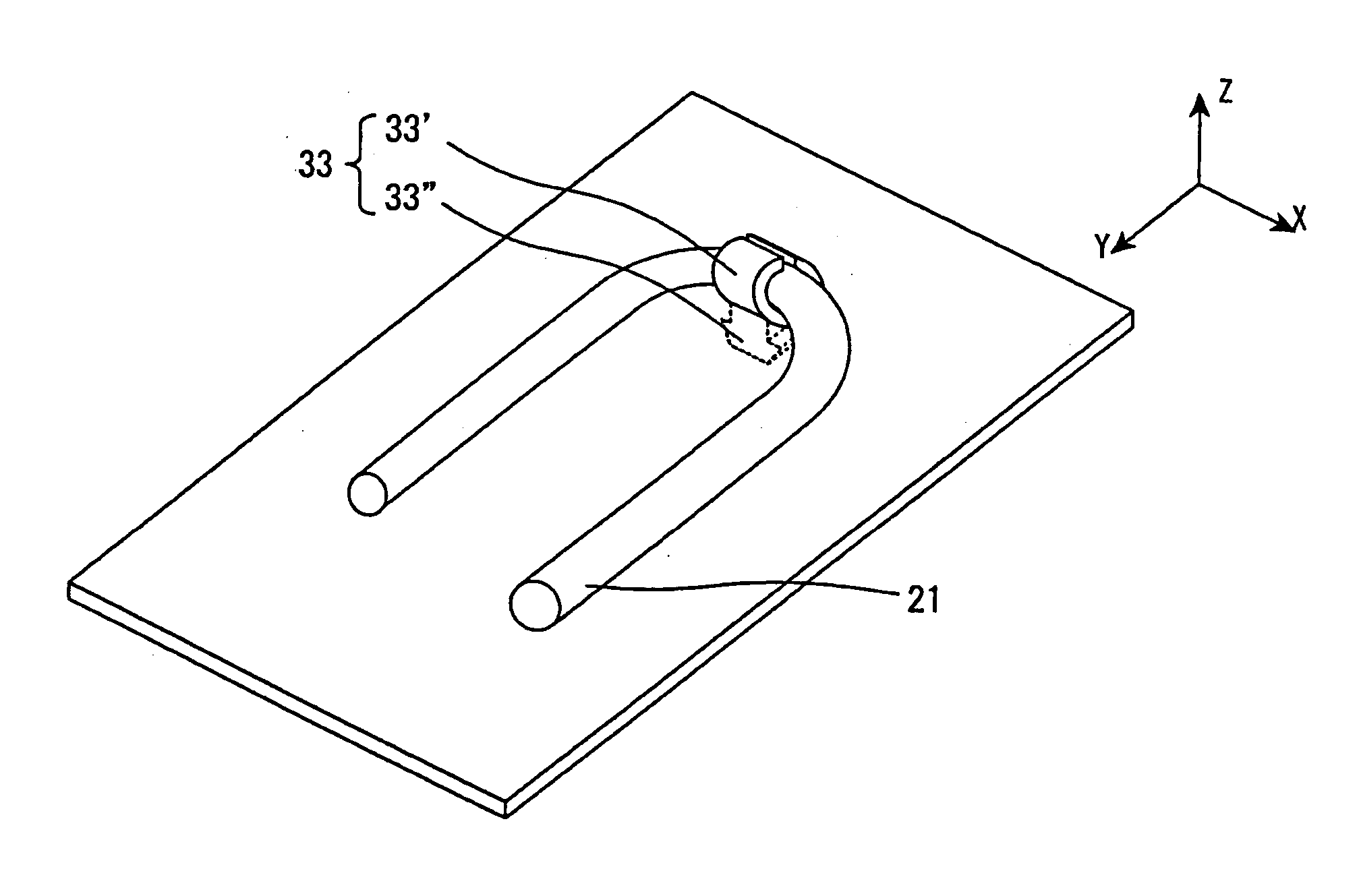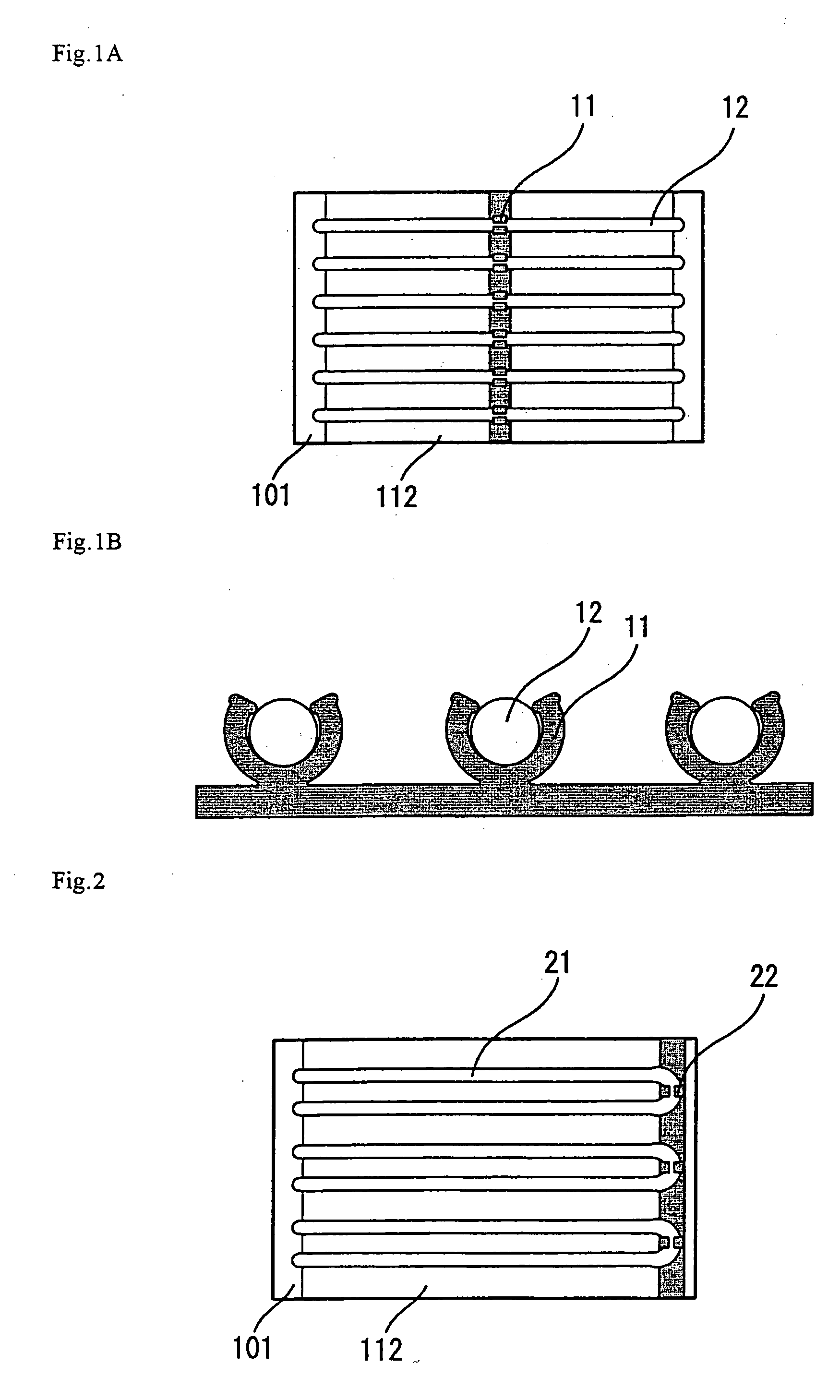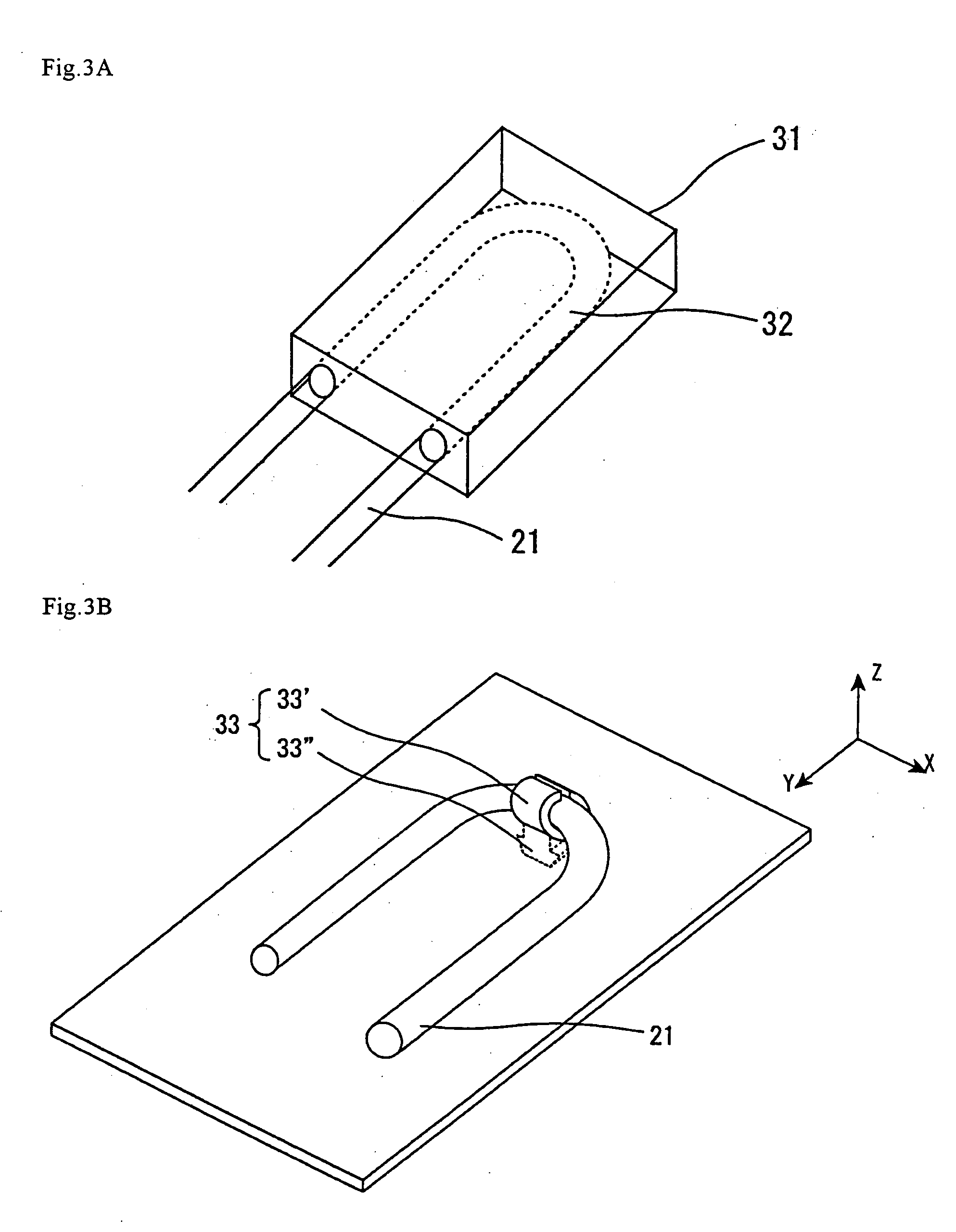Display device lighting unit
a technology for display devices and lighting units, which is applied in lighting and heating apparatus, lighting support devices, instruments, etc., can solve the problems of increasing electrical consumption, increasing total heat generation, and affecting display quality or reliability, and achieves the effects of reducing the number of LEDs
- Summary
- Abstract
- Description
- Claims
- Application Information
AI Technical Summary
Benefits of technology
Problems solved by technology
Method used
Image
Examples
example 1
[0133] A lighting unit was constituted by placing, in the display region of a liquid crystal display device having a lighting unit at the back of the liquid crystal display element, a white lamp holder 11 made of an insulating resin and morphologically capable of supporting a plurality of straight tube type fluorescent tubes 12 on a highly reflecting resin 112 and disposing a plurality of straight tube type fluorescent tubes 12 thereon in parallel and at regular intervals, as shown in FIG. 1.
[0134] In this example and the subsequent examples, the shape, material, number and positions of the lamp holders made of an insulating resin are not restricted in any way in the modes of embodiment of the invention. The liquid crystal display device may have either a direct type backlight or an edge light type backlight having a U-shaped lamp or a plurality of U-shaped lamps.
[0135] According to such constitution, lamps are supported by a lamp holder resulting from integration of a plurality o...
example 2
[0136] A lighting unit was constituted by disposing, in the non-display region of a liquid crystal display device having a lighting unit at the back of a liquid crystal display element, the supporting members of a lamp holder 22 made of an insulating resin and morphologically capable of supporting a plurality of U-shaped fluorescent tubes (U-shaped tube light source lamps) 21 on a sheet metal 111 and disposing U-shaped fluorescent tubes 21 thereon in parallel and at regular intervals, as shown in FIG. 2.
[0137] According to such constitution, lamps are supported by a lamp holder resulting from integration of a plurality of supporting members into one piece and therefore the number of parts can be reduced and, further, light source lamps can be disposed precisely at regular intervals; thus, liquid crystal display devices excellent in display quality can be provided at low cost.
example 3
[0138] On the occasion of inserting the U-shaped curved portion of a U-shaped fluorescent tube 21, which is the light source lamp, into a housing frame 41 in the section for housing the fluorescent tube 21 into the housing frame 41 in a liquid crystal display device having a lighting unit at the back of a liquid crystal display element, the U-shaped curved portion of the U-shaped fluorescent tube 21 was supported by a lamp holder 31, 33, 34 or 35 made of an insulating resin and inserted, in that state, into the housing frame 41, as shown in FIG. 3. A lighting unit was thus constituted.
[0139] According to such constitution, that portion of a U-shaped fluorescent tube which is to be housed in a housing frame is housed via a lamp holder made of an insulating resin, so that the U-shaped curved portion of the U-shaped fluorescent tube can be prevented from coming into contact with the housing frame; a good liquid crystal display device can thus be provided.
PUM
 Login to View More
Login to View More Abstract
Description
Claims
Application Information
 Login to View More
Login to View More - R&D
- Intellectual Property
- Life Sciences
- Materials
- Tech Scout
- Unparalleled Data Quality
- Higher Quality Content
- 60% Fewer Hallucinations
Browse by: Latest US Patents, China's latest patents, Technical Efficacy Thesaurus, Application Domain, Technology Topic, Popular Technical Reports.
© 2025 PatSnap. All rights reserved.Legal|Privacy policy|Modern Slavery Act Transparency Statement|Sitemap|About US| Contact US: help@patsnap.com



